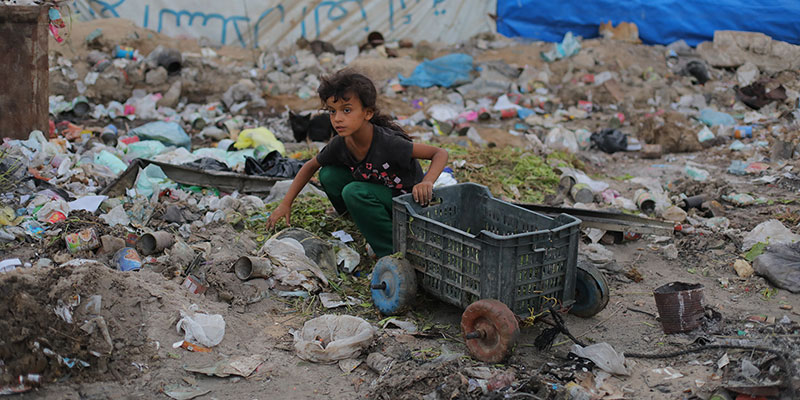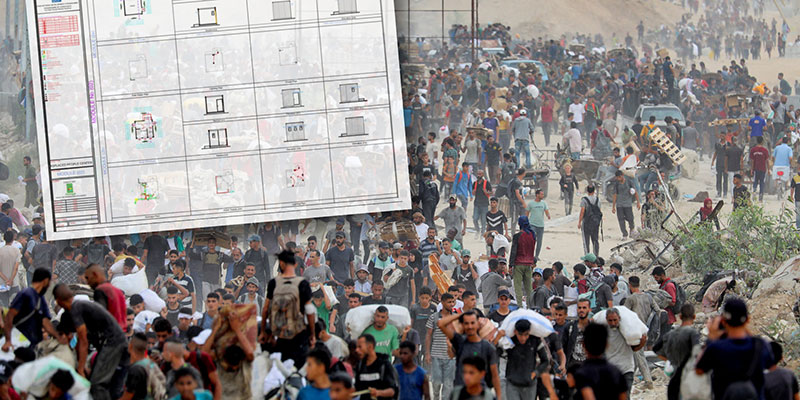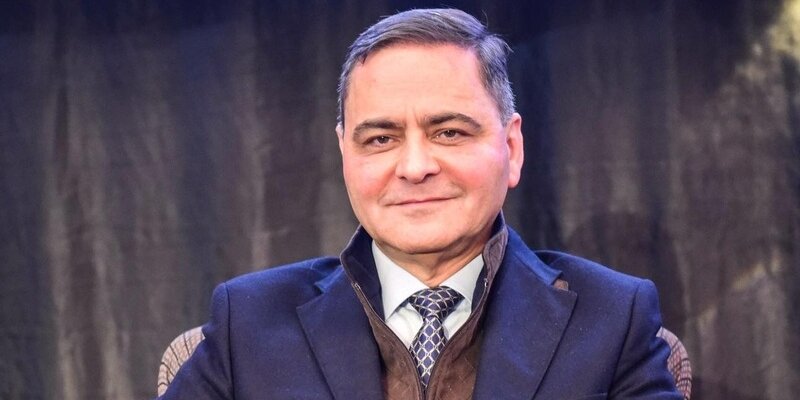The End of the Taboo: One in Five Golan Druze Holds Israeli Citizenship
According to data obtained through a freedom-of-information request, the number of naturalization requests submitted by Druze residents of the Golan Heights has remained historically high over the past two years. Within the community itself, those taking Israeli citizenship are no longer sanctioned and the issue is seen as a personal choice. While researchers disagree over what the future holds, they all say that what happens in Syria will set the tone. A Shomrim cooperation with The Times of Israel


According to data obtained through a freedom-of-information request, the number of naturalization requests submitted by Druze residents of the Golan Heights has remained historically high over the past two years. Within the community itself, those taking Israeli citizenship are no longer sanctioned and the issue is seen as a personal choice. While researchers disagree over what the future holds, they all say that what happens in Syria will set the tone. A Shomrim cooperation with The Times of Israel

According to data obtained through a freedom-of-information request, the number of naturalization requests submitted by Druze residents of the Golan Heights has remained historically high over the past two years. Within the community itself, those taking Israeli citizenship are no longer sanctioned and the issue is seen as a personal choice. While researchers disagree over what the future holds, they all say that what happens in Syria will set the tone. A Shomrim cooperation with The Times of Israel
Residents of Majdal Shams celebrate the fall of the Assad regime. Photo: Reuters

Fadi Amun
January 6, 2025
Summary


Listen to a Dynamic Summary of the Article
Created using NotebookLM AI tool
Against the backdrop of the wars in Gaza and Lebanon, the fall of the Assad regime, and the tragic death of 12 Druze children in Majdal Shams in a Hezbollah rocket attacks, the number of Druze residents on the Golan Heights applying for Israeli citizenship can be seen as an indication of community’s mood inside Israel and perhaps also in Syria. Data obtained by Shomrim from the Population and Immigration Authority thanks to a request filed through the Movement for Freedom of Information reveals that the number of citizenship applications remains unchanged – and at a historically high level. The number of Druze on the Golan Heights who hold Israeli citizenship rose dramatically in recent years and is currently at just over 20 percent.
Almost 400 naturalizations a year
The record year for Druze naturalizations was 2022, when 438 citizenship requests were submitted, of which 419 were approved. In 2023, that number dipped slightly to 406, of which 389 were granted, and in the first 11 months of 2024 there have been 352 requests, of which 318 were approved. Assuming that the trend continues through the end of 2024, this year is expected to end with a similar number of requests to 2023.
Looking at the broader picture, over the past three years (2022-2024), Israel approved 1126 citizenship requests from Druze on the Golan Heights, compared to just 539 in the five-year period between 2017 and 2121.
Based on data from the Population and Immigration Authority, approximately 6,000 of the over 29,000 Druze residents in the Golan Heights—about 20.45%—currently hold Israeli citizenship. Compared to 2022, this is an increase of around 3.6 percent of the total Druze community in the area. Part of this increase is the result of more applications being submitted and part is the result of couples with Israeli citizenship having children.

While applying for Israeli citizenship has not been a rarity in the Druze community for many years, it is still something of a controversial issue. While there are no longer boycotts organized against those who apply for Israeli citizenship, as was the case for many years, it is still hard to find anyone willing to talk openly about their decision – and even within families there is much secrecy surrounding the issue.
For the vast majority of the years since Israel occupied the Golan Heights, the Druze residents were fiercely loyal to the Syrian regime, for many and varied reasons, chief among which was the assumption that a scenario existed in which the territory could be returned to Syrian control as part of a peace treaty with Israel. The Assad regime – first under Hafez Assad and then his son, Bashar – ensured that Damascus’ relations with the Druze community on the Golan remained strong, in part by offering them generous financial incentives, such as importing massive quantities of apples from the Golan, subsidizing university studies in Syria for young Druze men and women and allowing family visits between the Israeli and Syrian Golan.
Despite the efforts of the Syrian regime, however, the attractiveness of these incentives wore off over the years. This led to a decline in agriculture on the Golan, which became secondary to other economic sectors, such as tourism and construction, which strengthened the community’s ties with Israel. Moreover, the Syrian civil war meant that studying in Damascus was no longer an attractive option and also interfered with family visits.
“The Druze see their mother country disintegrating with the fall of the Assad regime and they are looking for an anchor,” says Dr. Yusri Hazran

This process, accompanied by a consistent increase in the number of requests for Israeli citizenship, unfolded to a large extent behind the scenes – at least until the October 7 attacks and a number of subsequent incidents, which brought the issue to the fire. For example, in the immediate aftermath of the Hamas attack, Druze local authorities on the Golan set up armed rapid-response teams in their communities – in so doing, they openly cooperated with the IDF and the State of Israel, notwithstanding the heavy symbolism of working with the Israeli military and government. Another critical moment was the Hezbollah rocket attack which killed 12 children on a soccer field in the Druze town of Majdal Shams, which provoked massive anger toward the Assad regime – Hezbollah’s ally – as well as an expectation that Israel would take decisive action against those responsible for the tragedy.
.jpeg)
The Syrian effect
Dr. Salim Brik, a researcher on Arab society and a political science lecturer at Haifa University and the Open University, believes that the main reason for the upward trend in citizenship requests is the assessment within the Druze community that Syria will not assume control of the Golan Heights any time soon. Another reason, he argues, is the demise of the once-fierce opposition within the community to taking Israeli citizenship and the absence of social sanctions for doing so. Now, he says, the issue of applying for Israeli citizenship is seen as a personal choice.

Dr. Yusri Hazran, a research fellow and senior lecturer at Shalem College, sees things differently. He says that there are four main reasons why Druze residents of the Golan Heights apply for Israeli citizenship: the ongoing decline in the political protest against Israel; the absence of an alternative to Israeli rule, coupled with the fresh understanding that Assad’s successors in Syria are bad news for the Druze community; integration into the Israeli economy; and a desire to study in Israeli academic institutions.
“The Druze see their mother country disintegrating with the fall of the Assad regime and they are looking for an anchor,” he says, pointing to the rapid-response teams as a significant example of the change. “I believe that the upward trend in citizenship requests will continue. I can’t think of anything that would change the graph in the coming years. On the contrary, I estimate that a further increase is expected."
All of the researchers with whom Shomrim spoke were of the opinion that the fall of the Assad regime was a moment of historic significance for the Druze and will have a long-term effect on their naturalization. Whether or not the new regime is less oppressive and whether this will change the trend remains to be seen.
Dr. Tayer Abu Salah is an international relations researcher and the head of the Golan Association for the Development of Arab Villages, who lives in Majdal Shams. He says that the number of naturalizations surprised him – but only because he expected them to be higher. Based on his familiarity with the community, he explains that in recent weeks the Druze have been analyzing events in Syria and hoping for positive developments. What unfolds on the Syrian front will have a massive impact on their future in general and on the naturalization issue in particular.
“It must be pointed out that, even after 57 years of Israeli occupation, most of the Druze community on the Golan is still loyal to their country of birth, which is Syria,” says Dr. Tayer Abu Salah

Asked what the Druze community’s considerations are when analyzing the Syrian situation, Abu Salah he mentions regional alliances which will become reality under pressure from U.S. President-elect Donald Trump, moderate comments from Syria’s new leader, Abu Mohammed al-Golani, and Israel’s record of withdrawing from territory it captured during the Six-Day War. “If what happens in Syria is positive, it will have a positive impact on the Golan – and vice versa. In any case, it must be pointed out that, even after 57 years of Israeli occupation, most of the Druze community on the Golan is still loyal to their country of birth, which is Syria.”













